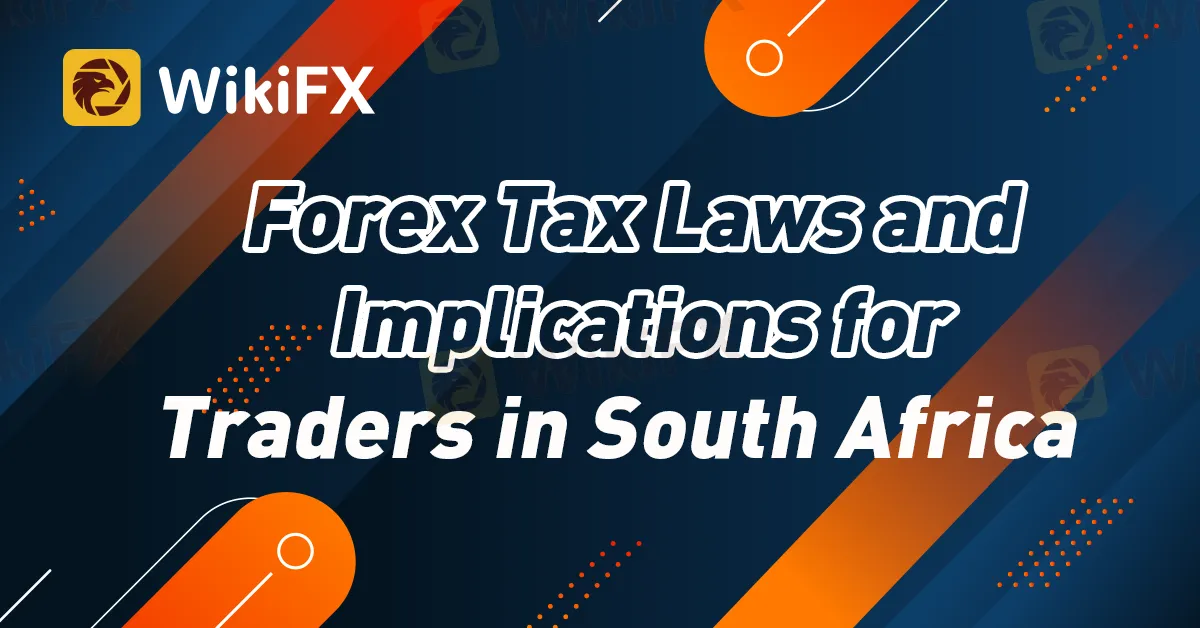Abstract:Forex trading has become increasingly popular in South Africa, with more and more traders taking advantage of the opportunities offered by the global currency markets. However, many traders may not be aware of the tax implications of forex trading, and the importance of complying with the relevant tax laws.

Forex trading has become increasingly popular in South Africa, with more and more traders taking advantage of the opportunities offered by the global currency markets. However, many traders may not be aware of the tax implications of forex trading, and the importance of complying with the relevant tax laws.
In South Africa, forex trading falls under the tax laws of the South African Revenue Service (SARS). SARS requires forex traders to declare any profits or losses made from forex trading as part of their taxable income. This means that forex traders are required to pay tax on their forex earnings, just like any other form of income.
The tax laws regarding forex trading in South Africa can be complex and confusing, and it is important for traders to understand their obligations under the law. Failure to comply with tax laws can result in fines or penalties, so it is crucial for traders to ensure that they are fully compliant with the relevant tax regulations.
One of the key things that traders need to be aware of when it comes to forex tax laws in South Africa is that profits and losses from forex trading are considered to be capital gains or losses. This means that traders are subject to capital gains tax (CGT) on their profits, and can claim a deduction for any losses they incur.
The CGT rate in South Africa varies depending on the individual's tax bracket. For individuals, the CGT rate ranges from 0% to 18%, while for companies, the rate is fixed at 22.4%. Traders should consult with a tax professional to determine their CGT obligations and ensure that they are complying with the law.
Another important aspect of forex tax laws in South Africa is the requirement to keep accurate records of all forex trading activity. This includes keeping records of all trades, profits and losses, and any expenses incurred in the course of trading. Traders must keep these records for at least five years, and must be able to provide them to SARS upon request.
Keeping accurate records is crucial for traders to ensure that they can accurately calculate their tax liabilities and claim any deductions that they are entitled to. It is also important to keep track of any changes in the tax laws, as these may affect the tax obligations of forex traders in South Africa.
For traders who are unsure about their tax obligations or need assistance with keeping accurate records, there are a number of resources available. One such resource is WikiFX, a leading forex platform that provides comprehensive information on forex trading and related tax laws in South Africa.
WikiFX provides a range of services to help forex traders in South Africa navigate the complexities of forex tax laws. These services include detailed guides on forex tax laws, as well as tools and calculators to help traders accurately calculate their tax liabilities.
In addition to these resources, WikiFX also provides access to a network of tax professionals who can provide expert advice and assistance with tax compliance. Traders can also use the platform to connect with other traders and share tips and strategies for successful forex trading.
To access WikiFX and take advantage of its comprehensive resources for forex traders in South Africa, simply visit the WikiFX website at www.wikifx.com.
In conclusion, forex tax laws in South Africa are an important consideration for forex traders, and compliance with these laws is crucial to avoid fines or penalties. Traders must keep accurate records of all trading activity, and should consult with a tax professional to ensure that they are fully compliant with the law.
For traders who need assistance with forex tax compliance, resources such as WikiFX are available to provide expert guidance and support. By taking advantage of these resources, forex traders in South Africa can ensure that they are fully informed and compliant with all relevant tax laws.










